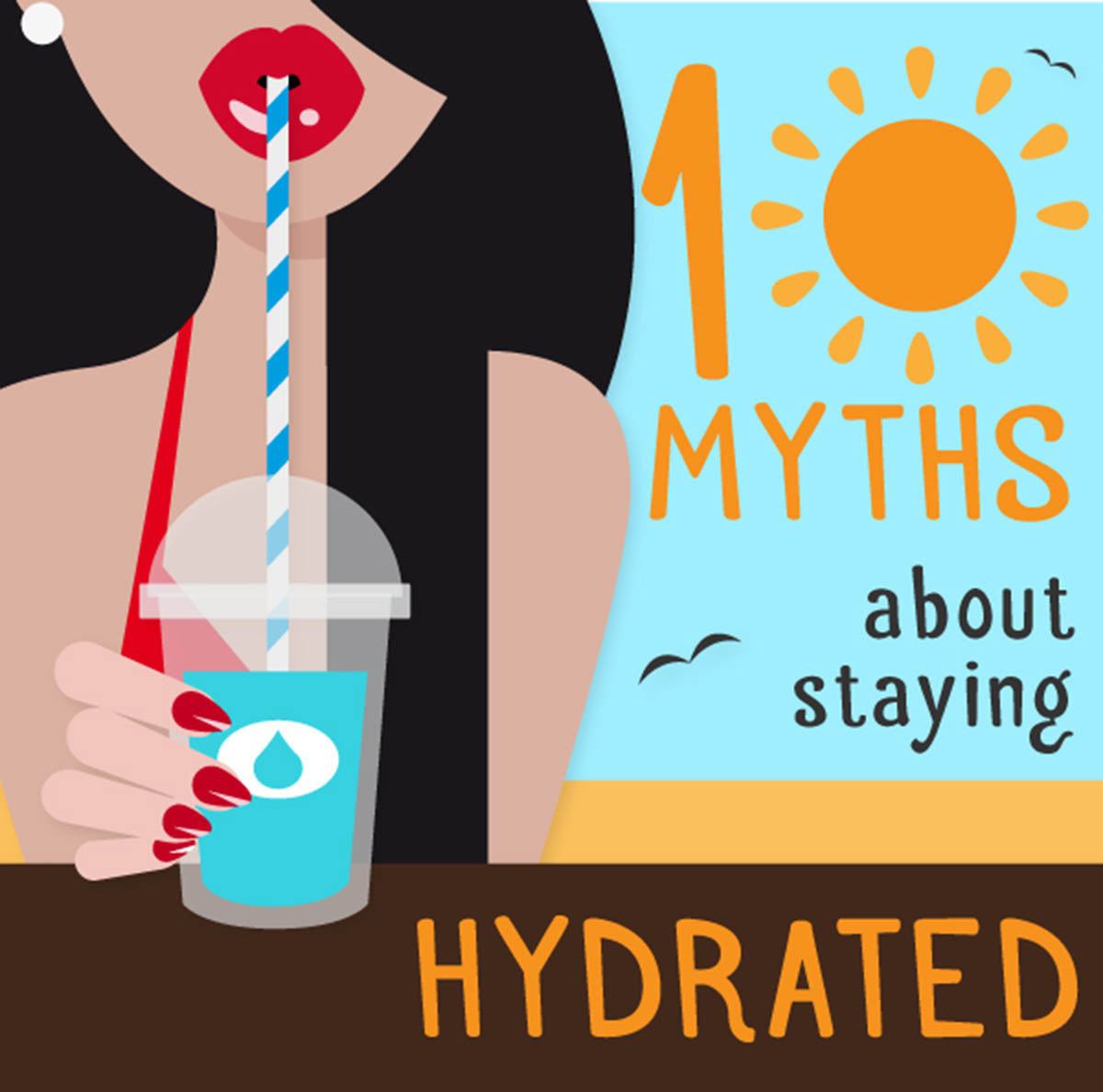Table of Contents
One of the most troubling myths about hydration and dehydration is the following:
Myth 5. People who are dehydrated always look "dry."
Dry skin, particularly dry skin that you can "pull," is a sign of dehydration. However, sometimes the body's water is "compartmentalized." The problem is that your cells, including your skin cells, can't pump water back into the bloodstream. This usually occurs as a result of diabetes, and is most common in people who consume too much of both sugar and salt.

Myth 6. Drinking water will hydrate your skin.
Your skin will look grayish and vaguely dusty if you don't get enough water, but you can be well hydrated and still have dry skin if you have circulatory problems. Splashing a little water on your skin, or applying a moisturizer that restores your skin's ability to retain water, of using mineral waters on your skin before you apply makeup, are better ways to achieve a dewy, soft complexion.
Myth 7. Coconut water is "super-hydrating."
There are many virtues of coconut water, the less it has been processed, the better. Coconut water is a good, fast source of a small amount of sugar. Coconut water provides electrolytes. Coconut contains chemicals that fight infection. However, there is nothing about coconut water that makes it better for hydration than ordinary water. An American marketer of coconut water, Vita Coco, had to pay heavy fines for making an unsustantiated claim that coconut water is super-hydrating.
Myth 8. Coffee and tea are dehydrating.
Caffeine is in fact a diuretic. It forces your kidneys to expel water. However, the diuretic effect of caffeine is less than the hydrating effect of coffee or tea, so you can drink either of them without worry of dehydration.
READ The Good And Bad Of Coffee
Myth 9. All foods are equally hydrating.
There is water in all foods, even the dryest zwieback or the saltiest salted cod. (Salted fish that hasn't been soaked, however, is definitely dehydrating.) Some foods, however, are far more hydrating that others. There is more water in a piece of fruit or a salad than in meat or cheese. You'll get more hydration by eating mimimally processed, lightly salted plant foods than by eating heavily salted animal foods. "Moist" foods, however, can do something for you that simply drinking water cannot. Your stomach quickly sends water on to the large intestine for absorption. A moist food like a stalk of celery, however, takes more time to digest than a well-chewed cracker. The longer your stomach takes to digest food, the less you want to eat, and the less weight you gain.
Myth 10. Drinking water won't really help you lose weight.
Health experts spent so many years pushing the idea that drinking water helps people lose weight that there has been a kind of backlash at the idea. The fact is, well-hydrated cells burn fats more efficiently. You can't have well-hydrated, fat-burning cells if you don't drink enough water. However, consuming lots of sugar can limit the benefits of drinking water, because the transportation of glucose into a cell is accompanied by an influx of sodium. Water-logged cells don't burn fats well, either. The effect of getting a few cups more water a day while limiting your sugar consumption is limited, but it helps dieters lose and additional 2 pounds (a kilogram) every two months, and it encourages the loss of fat, not muscle.
- Hoffman MD, Bross TL 3rd, Hamilton RT. Are We Being Drowned by Hydration Advice on the Internet? Phys Sportsmed. 2016 Aug 22:1-6. [Epub ahead of print] PMID: 27548748.
- Stookey JD, Constant F, Popkin BM, Gardner CD. Drinking water is associated with weight loss in overweight dieting women independent of diet and activity. Obesity (Silver Spring). 2008 Nov.16(11):2481-8. doi: 10.1038/oby.2008.409. Epub 2008 Sep 11.
- PMID: 18787524
- Infographic by SteadyHealth.com
- Infographic by SteadyHealth.com
- Infographic by SteadyHealth.com


Your thoughts on this